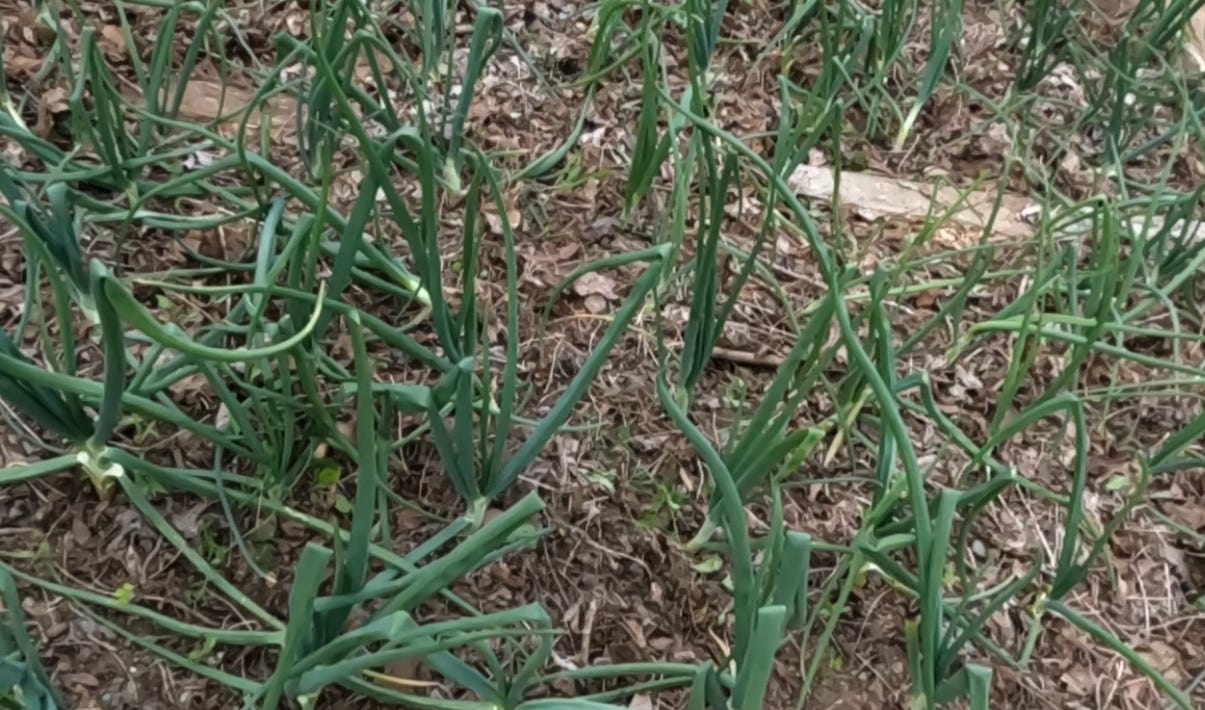The Cheat-Code for a Large Garden
I have a 2,500 square foot garden. Many people might think that size of a garden is unmanageable for a person with a busy life - but there are ways to cheat at this game.
I have a 2,500 square foot garden. It’s a large garden as far as backyard gardens go. In fact, most people are a little stunned when they see it for the first time, and think that it is completely unmanageable for any normal person with a normal life. But there are ways to cheat at the large garden game that only become obvious when you become a player. In this article, I review a few of the tricks that I have learned over the years.
Mulch
The tasks most people complain about when it comes to large gardens are weeding, watering and soil preparation. The great thing about keeping everything mulched is that it greatly reduces the need for all of these tasks. Don’t get me wrong - at times all these tasks might be required - but when maintaining a mulch, the need for all of them can be greatly reduced. Mulches reduce the need to water by acting like a cover that decreases the rate of soil evaporation. Some mulches can also like a sponge, and can hold water during rains, which can later be absorbed into the soil by means of gravity. Mulches suppress weeds in three ways: (1) by keeping the soil cool, many weed seeds will not germinate; (2) seeds that do germinate cannot penetrate the mulch and die from lack of sunlight; and, (3) seeds that germinate are often in a weakened state while they try to get through the mulch, and are eaten by pests before they can can mature enough to withstand pest attacks. Mulches reduce the need for soil preparation by creating the optimal conditions for soil organisms to thrive through: (1) reducing soil compaction from rains; (2) maintaining moisture levels; and, (3) providing a constant source of new organic matter. As a result, the activity of a thriving population of soil organisms keeps soil soft and fertile. Every inch of soil in my garden is mulched.

All mulches are not created equally. Some break down very quickly, and some can last an entire season. Some are better for moisture retention and some have almost no effect on moisture retention. Some feed soil organisms due to higher nutrient counts, and some do very little in that regard. Some are better for weed suppression, and some are terrible at suppressing weeds - and may even bring in new weeds! The table below provides a simple overview of a range of mulches and their various pros and cons in terms of these factors.
Keep reading with a 7-day free trial
Subscribe to The Maritime Gardening Newsletter to keep reading this post and get 7 days of free access to the full post archives.


